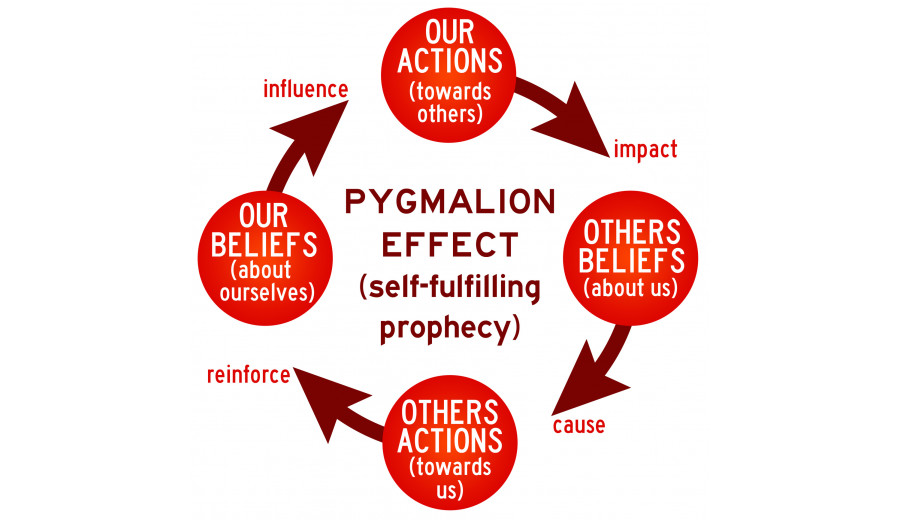According to ancient Greek
mythology, the sculptor Pygmalion was so disillusioned with women that he vowed
never to marry. Instead, he carved a statue out of ivory – a figure of
breathtaking beauty – and fell in love with it. He named her Galatea and
treated her as if she were alive. His passion was so sincere that the goddess
of love, Aphrodite, brought the statue to life, and Pygmalion was able to take
her as his wife.
This myth is a metaphor for
how love, belief, and focused attention can “bring to life” even what seems
dead or impossible. It’s from this story that the psychological concept known
as the Pygmalion Effect gets its name. The myth is symbolic, but the effect
itself is very real.
Psychologist Robert Rosenthal
and school principal Lenore Jacobson conducted a study in a regular American
school. They told teachers that, based on the results of a “special test,” some
students had been identified as having high “hidden intellectual potential.” In
reality, the students were chosen at random. It was an experiment. A year
later, these children showed significant improvements in academic performance
and cognitive skills, especially in the younger grades. Why did it work?
Because subconsciously, the teachers began to expect more from those students.
They gave them more attention, more encouragement, and treated them with
greater warmth and patience. The students felt this shift in attitude, became
more confident, worked harder, and genuinely improved.
When someone believes in
another’s potential, they begin to treat them as if that potential is already
unfolding – and that belief can transform the other person. Patients recover
faster when doctors are confident in the treatment’s success, even when the
treatment is minimal. When a manager believes in an employee’s abilities, they
offer more freedom, trust, and space for creativity, and the employee often
becomes more productive.
The same applies in personal
and family relationships. If one partner sees potential in the other – whether
individual, creative, or spiritual – even if the person doesn’t see it in
themselves, they begin to grow toward that vision. How can we recognize
potential in others?
First, by understanding that
the soul of your partner is perfect, and they already possess many beautiful
qualities. Then, begin looking at them from that angle – from a purely
positive perspective. See their potential and those beautiful traits. And
then, something remarkable happens: they begin to change. And if you can’t
see those qualities? Ask yourself: What is blocking me from seeing them?
Work with that.
Again, the world is our
mirror, and each of us sees it differently. If we train ourselves to see the
good in others, to spread kindness and love, and to envision the future in
bright, positive colors, then the mirror of the world will reflect that to us.
We are co-creators of this world.
The same applies to how we
see ourselves. See yourself as successful. Feel, with every fiber of
your being, your divine inner beauty. Know that you already have everything
within you to reach your goals – that’s what the Creator wants from us. It’s
not in our best interest to remain stuck in a mindset of victimhood – trapped
by circumstances, trauma, resentment, or unhealthy relationships.
The barren Chana believed she
could give birth. She envisioned her child and continued to pray with
persistence. The Creator gave her a son – the great prophet Shmuel. Through the
power of faith, Avraham shifted the natural order, and Sarah gave birth to
Yitzchak.
Yosef had a dream in which
his brothers bowed to him – a vision of greatness. Even after being sold into
slavery, he believed in his destiny and ultimately became the ruler of Egypt.
Rabbi Akiva began life as a simple, illiterate shepherd. His wife, Rachel, saw
the potential of a great sage within him, even when no one else did. Because of
her unwavering faith and support, he began learning Torah at the age of 40 and
became one of the most influential sages of the Talmud. A pure example of the
Pygmalion Effect in its spiritual and emotional form – the wife’s love and
faith created a great man.
Each of us possesses not only
the ability to think, hear, and see, but a powerful tool to transform our own
reality. Have you ever experienced this in your life?
Share it with us!

















